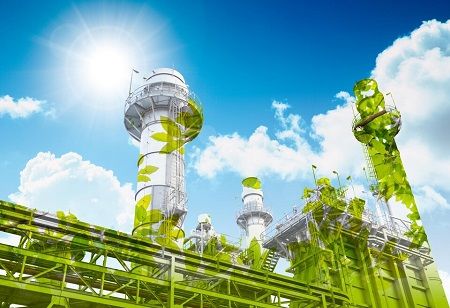
- IsDB and Turkiye team up to modernize industrial zones for green growth.
- Supports the 2053 net-zero goal with a focus on water efficiency and sustainability.
- Experts doubt targets, though some industries have set clear reductions.
To enhance sustainable manufacturing and infrastructure, the Islamic Development Bank Group has partnered with the Ministry of Industry and Technology of Turkiye to enable an even larger initiative to modernize the industrial zones of the country and speed up its green transition.
This initiative is aligned with Turkiye's journey to net-zero GHG emissions by 2053, and will form part of the country's 12th National Development Plan (2024-28) and 2030 Industry and Technology Strategy.
According to the Saudi Press Agency, the initiative is aimed at clustering industrial facilities in specific areas, minimizing environmental impacts, and promoting green growth.
Even if Turkiye aims to peak emissions by 2038 and net zero emissions by 2053, independent assessments cast doubt on the achievability of this aim. The Climate Action Tracker has rated this strategy "poor" because of insufficient ambition and transparency, and noted the 15-year timeframe for net zero is far too narrow.
Yet some subdivisions of the economy - including cement, iron and steel, aluminum, and fertilizers - have developed more concrete reduction targets, but these remain exceptions, according to CAT.
Also Read: Singapore, Indonesia Sign Three New Green Energy Partnership Deals
Dr. Walid Abdelwahab, Director, Islamic Development Bank (IsDB), described the project as “a vital step in fulfilling the IsDB’s commitment to supporting sustainable industrial transformation, enhancing economic resilience, and promoting climate-conscious development.”
The team of specialists at IsDB's offices in Jeddah and Ankara has been actively collaborating with numerous governmental agencies and authorities of industrial zones. The dialogue has focused on information collection, identifying barriers, and aligning the project with national investment and climate resilience priorities.
According to SPA, the project focuses on important sectors such as wastewater management, improved water efficiency, and green infrastructure, establishing a baseline for long-term sustainable industrial development.

